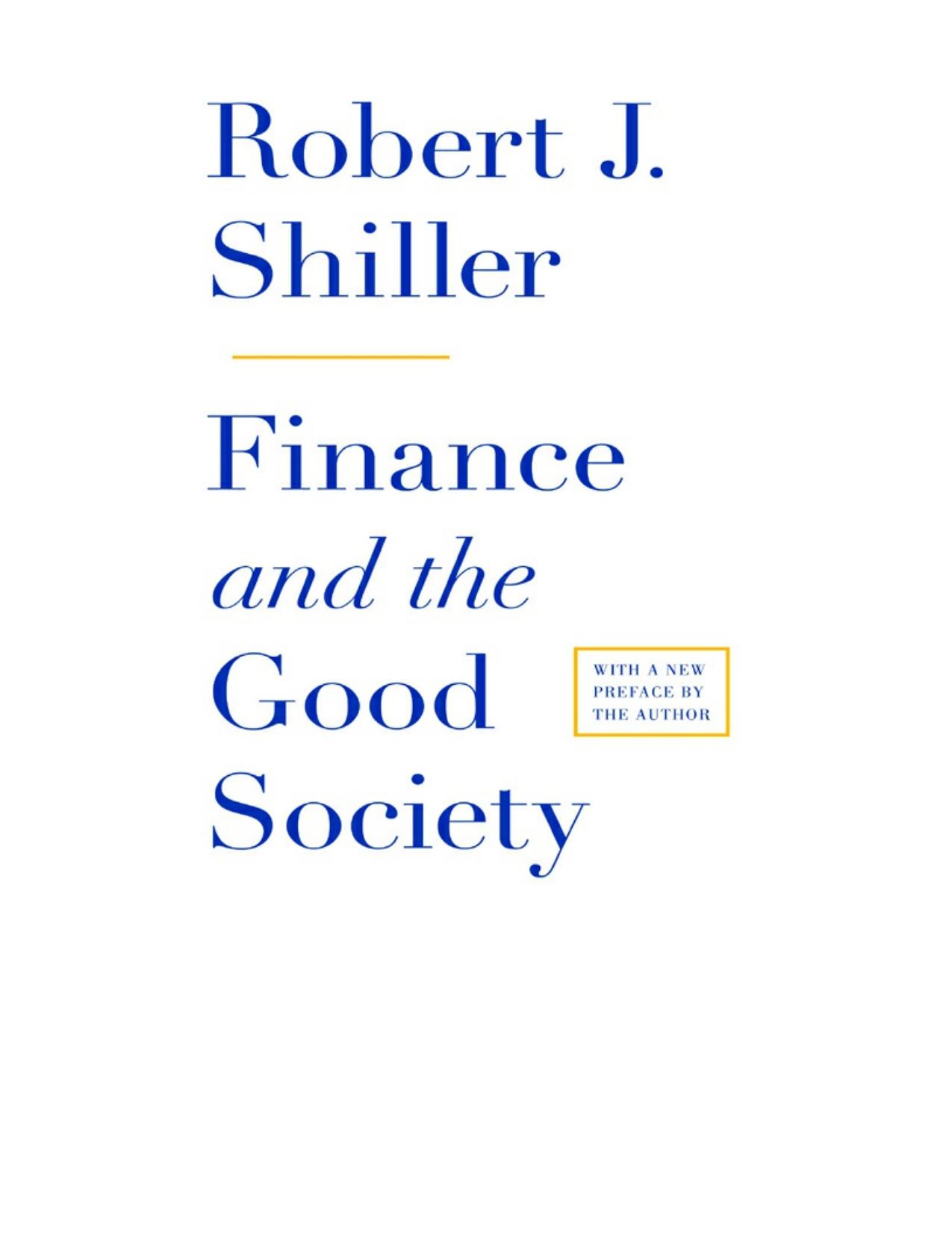Finance and the Good Society (New in Paperback) by Shiller Robert J

Author:Shiller, Robert J.
Language: eng
Format: epub, pdf
Publisher: Princeton University Press
Published: 2013-08-01T16:00:00+00:00
Chapter 22
An Impulse for Conventionality and Familiarity
Standing in opposition to the impulse for risk taking described in the preceding chapter is a nearly opposite impulse for conventionality and familiarity. This impulse can take many forms, but for our broad purposes here it is important to consider how it can push people toward reliance on old-fashioned financial institutions and outdated economic structures.
Financial concepts, as abstract as they are, are difficult for most people to comprehend. They fear being manipulated or cheated by others who are more facile with these concepts. And yet people readily understand that financial arrangements are terribly important to their lifetime well-being, as individuals, or for the long-run success of their enterprises, as managers. They fear surprises, years or decades down the road, that may do real harm.
There is thus a tendency to rely slavishly on traditional financial forms, to want to copy time-honored institutions, and often to do so based on outward appearances. People are naturally drawn to financial forms that appear to be steeped in long tradition and that are thought of as characteristic of the successful. These forms even become viewed as elements of a system of justice: the traditional financial arrangements are associated in our minds with the eternal rights of mankind.
There are a number of reasons for this impulse for conventionality and familiarity. Partly it is just habit. If one looks at newsstands, one will find that they are for the most part selling the same brands of candy bars they were thirty or fifty years ago. We just tend to grab for the familiar.
Partly it is because of concerns about liquidity: we do not want to get into an unconventional financial instrument because we think we might have difficulty selling it, for other investors would not be familiar with it. Partly it is because we fail to take into account the often-subtle special factors (e.g., legal restrictions, the state of information technology) that once made older forms of finance necessary, factors that may no longer be relevant in modern times; thus we tend to conclude, incorrectly, that those older forms have a still-relevant essential wisdom behind them.
Partly it is because we think that it is always risky to experiment with new things (such as new medicines) because their problems will be revealed only with time. Partly it is a problem with government financial regulators, who may feel restricted by bureaucratic structures and the perceived need to respect past law, created in an earlier environment that did not anticipate a particular financial innovation. Partly it is because of a free-rider problem: there is little incentive for the provider of a new financial instrument or service to expend resources to educate the public on its value if that value will just go to other providers who will hop onto the bandwagon after its worth has been proven.
For whatever reason, conventionality is a major factor inhibiting the application of financial principles to the design of new financial institutions. Financial modernization has been a very slow process, and the latitude for financial innovation is circumscribed.
Download
Finance and the Good Society (New in Paperback) by Shiller Robert J.pdf
This site does not store any files on its server. We only index and link to content provided by other sites. Please contact the content providers to delete copyright contents if any and email us, we'll remove relevant links or contents immediately.
International Integration of the Brazilian Economy by Elias C. Grivoyannis(110147)
The Radium Girls by Kate Moore(12018)
Turbulence by E. J. Noyes(8040)
Nudge - Improving Decisions about Health, Wealth, and Happiness by Thaler Sunstein(7693)
The Black Swan by Nassim Nicholas Taleb(7109)
Rich Dad Poor Dad by Robert T. Kiyosaki(6612)
Pioneering Portfolio Management by David F. Swensen(6289)
Man-made Catastrophes and Risk Information Concealment by Dmitry Chernov & Didier Sornette(6007)
Zero to One by Peter Thiel(5786)
Secrecy World by Jake Bernstein(4741)
Millionaire: The Philanderer, Gambler, and Duelist Who Invented Modern Finance by Janet Gleeson(4465)
The Age of Surveillance Capitalism by Shoshana Zuboff(4276)
Skin in the Game by Nassim Nicholas Taleb(4239)
The Money Culture by Michael Lewis(4198)
Bullshit Jobs by David Graeber(4179)
Skin in the Game: Hidden Asymmetries in Daily Life by Nassim Nicholas Taleb(3991)
The Dhandho Investor by Mohnish Pabrai(3759)
The Wisdom of Finance by Mihir Desai(3735)
Blockchain Basics by Daniel Drescher(3574)
